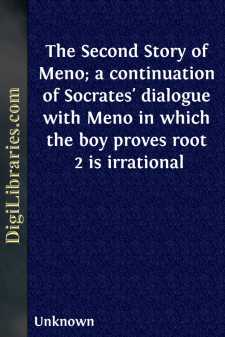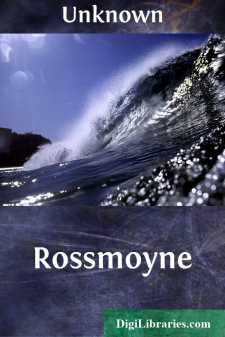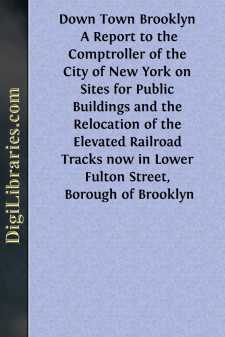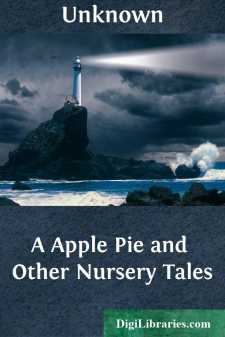Categories
- Antiques & Collectibles 13
- Architecture 36
- Art 48
- Bibles 22
- Biography & Autobiography 813
- Body, Mind & Spirit 142
- Business & Economics 28
- Children's Books 14
- Children's Fiction 11
- Computers 4
- Cooking 94
- Crafts & Hobbies 4
- Drama 346
- Education 46
- Family & Relationships 57
- Fiction 11829
- Games 19
- Gardening 17
- Health & Fitness 34
- History 1377
- House & Home 1
- Humor 147
- Juvenile Fiction 1873
- Juvenile Nonfiction 202
- Language Arts & Disciplines 88
- Law 16
- Literary Collections 686
- Literary Criticism 179
- Mathematics 13
- Medical 41
- Music 40
- Nature 179
- Non-Classifiable 1768
- Performing Arts 7
- Periodicals 1453
- Philosophy 64
- Photography 2
- Poetry 896
- Political Science 203
- Psychology 42
- Reference 154
- Religion 513
- Science 126
- Self-Help 84
- Social Science 81
- Sports & Recreation 34
- Study Aids 3
- Technology & Engineering 59
- Transportation 23
- Travel 463
- True Crime 29
James Lane Allen: A Sketch of his Life and Work
by: Unknown
Categories:
Description:
Excerpt
While "The Choir Invisible" was primarily a love story, the setting in which its action moved was historical. Apart from the masterly handling of human passion and the harmony of thought and expression with which he has treated the larger and deeper movements of life, it is probably Mr. Allen's ability to picture forth the early settlement of Kentucky that has given his writings so solid a foundation in the literary affections of English speaking people.
The fascination that "The Choir Invisible" has had for so many thousands of readers is assuredly due as much to the author's faithful historic treatment of the mighty stream of migration which had begun to spread through the jagged channels of the Alleghanies over the then unknown illimitable West as to his power to tell an absorbing story. When "The Choir Invisible" appeared, this perhaps most fascinating period of early American history had not been used as a background of his story by any great master of fiction, and it requires no very keen literary insight to discover the sources of the popularity which has been accorded to the four or five recent novels, each of which has for its setting a period in our history whose glamour has touched our hearts and stirred our imaginations.
Contemporary judgment is singularly unanimous in placing Mr. Allen in the front rank of American novelists, and it may not be out of place here to quote the opinions of two or three of the leading literary critical journals. William Morton Payne, in the Dial says that:
"Looking about among our younger men of letters for the promise of some new and vital impulse, it has for several years seemed to us that such an impulse might be expected to come from the work of Mr. James Lane Allen. He has published few books as yet, but the number is sufficient to reveal a steadily increasing mastery of his art, and the quality such as to warrant readers of discernment in predicting for him a brilliant career and an assured place in the front rank of American writers. The Choir Invisible does not disappoint these expectations. It is not only the most ambitious of Mr. Allen's books, considered merely as to its sale, but it is also the one in which he has carried to the highest pitch that fineness of perception and that distinction of manner that have from the first set his work apart from the work of nearly all of his contemporaries. Hardly since Hawthorne have we had such pages as the best of these; hardly since The Scarlet Letter and The Marble Faun have we had fictive work so spiritual in essence and adorned with such delicate and lovely embroiderings of the imagination. There are descriptive passages so exquisitely wrought that the reader lingers over them to make them a possession forever; there are inner experiences so intensely realized that they become a part of the life of his own soul."...
And again writing in the Boston Transcript, Bliss Carman, says:
"There are two chief reasons why Mr. Allen seems to me one of the first of our novelists to day....


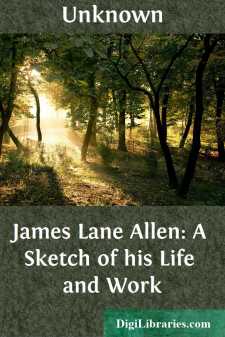
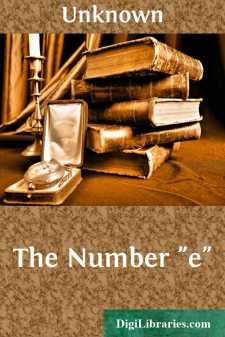
![The Golden Mean or Ratio[(1+sqrt(5))/2]](https://digilibraries-com.s3.eu-central-1.amazonaws.com/covers/762d190f-63a4-489a-b897-ff78516bd105.jpg)
